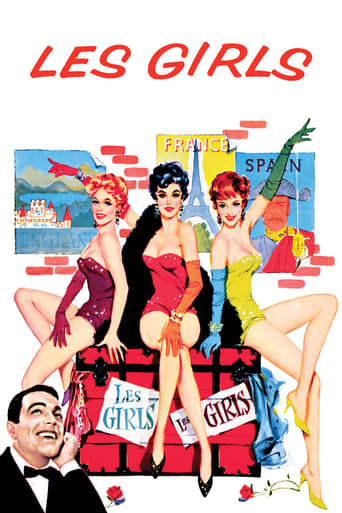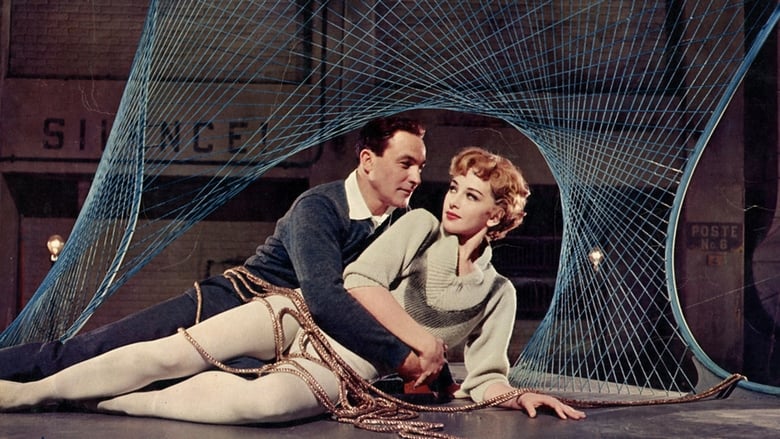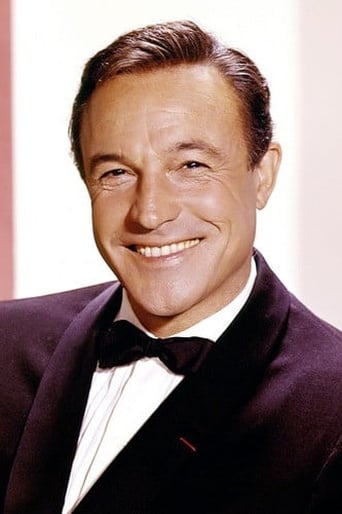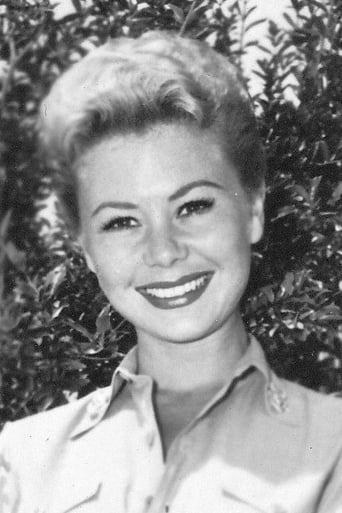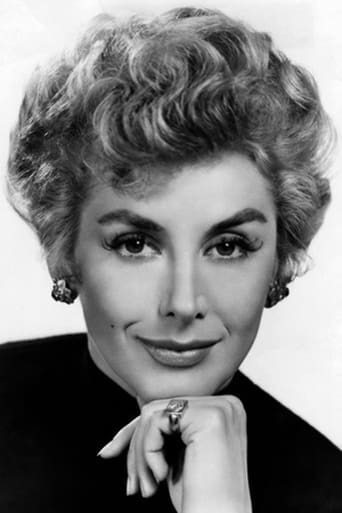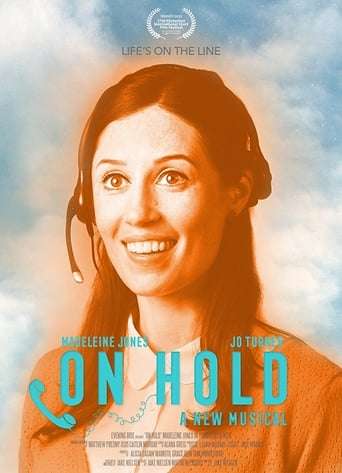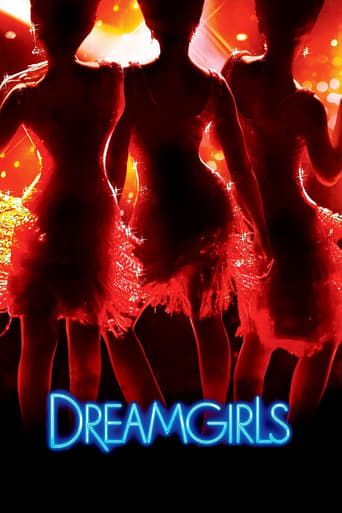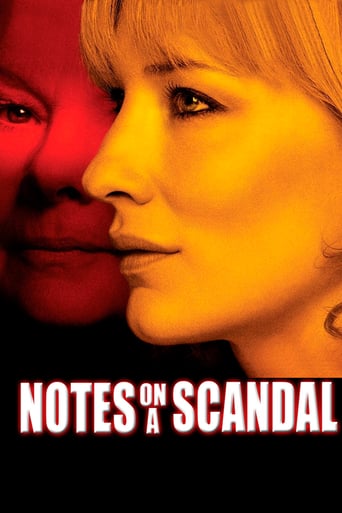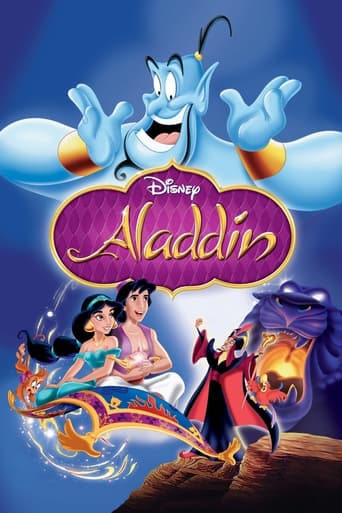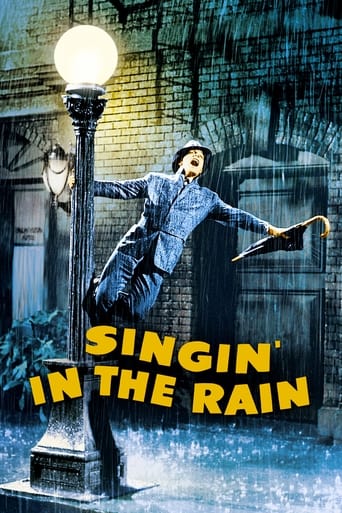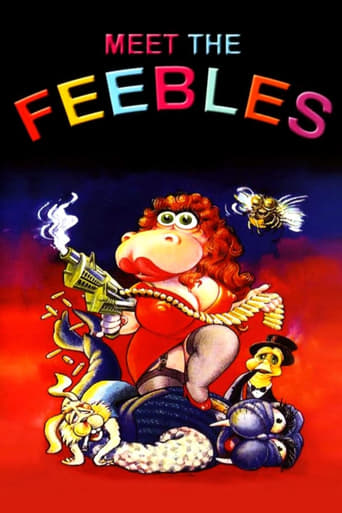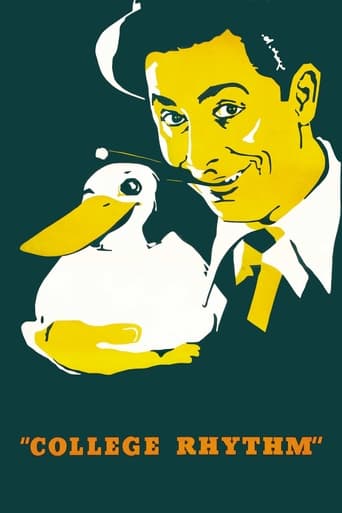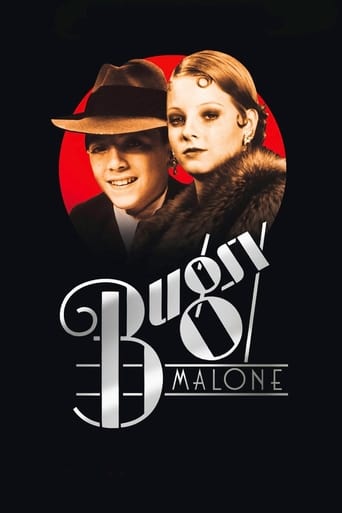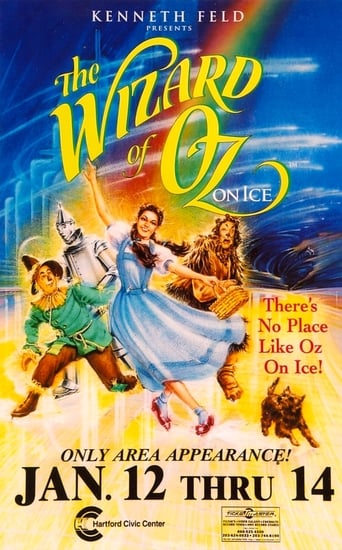Les Girls (1957)
After writing a tell-all book about her days in the dance troupe "Barry Nichols and Les Girls", Sybil Wren is sued for libeling her fellow dancer Angele. A Rashômon style narrative presents the story from three points of view where Sybil accuses Angele of having an affair with Barry, while Angele insists that it was actually Sybil who was having the affair. Finally, Barry gives his side of the story.
Watch Trailer
Cast


Similar titles
Reviews
The music isn't one of the best from Cole Porter and it features a strangely subdued Gene Kelly. There's a reason Cukor was called a woman's director, because in this film the women are the focus and are they hilarious! I never heard of Kay Kendal before watching this movie. Her unique beauty and comedic timing are genius. It is the worlds loss that she passed away so soon. Top notch performances, sumptuous costumes and choreography make this musical a must see.
An old school Hollywood filmmaker, George Cukor dives right into the most profound questions of humanity in "Les Girls" (1957), an MGM musical from the golden days, with an arguably tongue-in-cheek mentality which is, however, too often and too quickly taken as a loss of ambition and artistic devotion. The film discovers its peculiar place in between of conventional romantic comedy and philosophical tragedy. It consists of three flashback sequences linked together by a trial concerning a defamation suit. While all of the testimonies try to tell about the same time, place, and events in Paris around springtime when three female dancers were working for an American dance producer, the things the camera witnesses in each of the stories are wholly different from one another. The grandiose mise-en-scène, the Cinemascope aspect ratio, and the mobile camera as well as the complex narrative give the story an almost epic quality, thus creating poetry out of pulp prose. "Les Girls" is a very modern film. It has inter-textuality and its narrative shows signs of self- awareness. Although a concept laden with many meanings, modernism is often associated with something called perspectivism, meaning that all of events are filtered through the subjective perspectives of the characters which, in modern fiction, are juxtaposed with one another. "Les Girls" presents the spectator with three stories about the same time and place -- that is, they are intentionally directed to a same spatio-temporal point in the past -- but actually contain different events. This is due to the fact that all of the stories are, as all intentional experiences for that matter, about something from a perspective. "To see is to see from somewhere," wrote the French philosopher, Maurice Merleau- Ponty. Although the final testimony offered by the man involved at first seems to be the most plausible account and a certain final truth on the subject matter, it is very soon questioned by the third girl whose point of view was never heard. To see is always also to avert, and to uncover is always also to cover.This theme of the subjectivity of truth, and the integral role of perspectival perception in understanding and knowledge, connects "Les Girls" to the masterpiece of modern cinema, Akira Kurosawa's "Rashomon" (1950) which also consists of different stories about the same event from different perspectives. All the characters have experienced things from their own point of view -- which is both physical and mental, one might add -- and give a different account of them to the judge and the jury. Understanding is further problematicized in one scene where a Spaniard in a train compartment cannot linguistically understand the English dialogue between the main characters; yet he, too, arguably has his own point of view to the events. Cukor even seems to joke about this in the title of his film (deriving from the musical act the girls and the man are performing), combining the French definite article with an English word in a satirical slur (which never takes itself that seriously, however) towards Hollywood films where French people cannot speak their mother tongue -- only English in a French accent. In the end, as in "Rashomon", truth remains an issue. "Truth can make lovers of enemies, but lie can make enemies of lovers," one of the girls summarizes. Lie, in this sense, might be closer to primordial truth than truth itself; or, "art is a lie that makes us realize the truth," as Pablo Picasso once expressed. Truth remains a very concrete issue in the sense that the characters (quite literally) keep stumbling upon the immortal question "what is truth" carried around the courthouse by a man as if he was carrying a billboard for the latest scoop, an ironic comment on the capitalist modifications of truth, perhaps, working also as a certain chorus of Greek tragedy, making Cukor's "Les Girls", once again, a very modern film. The final beauty of the film lies, I suppose, in its brilliant courage to mix things, to throw outrageous comedy with poignant tragedy, menial stories with intelligent insight in the same pot of pondering humanity.
The plot for this film is a lot like taking the Kurasawa film "Rashomon" and combining it with "An American in Paris". The final product, while pretty to look at, it pretty dreadful--overly long, overly familiar and amazingly slight.The film begins with Angèle (Taina Elg) suing Sybil (Kay Kendall) following the publication of Sybil's tell-all book "Barry Nichols and Les Girls". What follows is a Rashomon-style plot where each of the particulars in the story tell their account of what happened back when they were a successful dance team--and each has a completely different idea of what has really occurred--and each thinks they were Barry's one love. So why wasn't I in love with this film? The biggest problem is that the characters are generally unlikable--especially the very manipulative Barry (Gene Kelly). As for the dancing, I hated it but it all depends on what style music you like. If you like big production numbers and lots of very modern dance, you'll probably like it. I prefer musicals where the singing and dancing are more integrated into the plot-- such as in the infinitely more successful film from this same period, "Gigi". Also, the film just lacks originality, as it did borrow so heavily from "Rashomon". But most importantly, I just found the film overly long and pretty dull. Pretty to look at...but dull.
This movie is a failure on so many fronts, I'm not sure where to start.Perhaps by saying how very sorry I am that it's such a disappointment. I very much like Gene Kelly's other work, love a lot of Cole Porter, many George Cukor movies, etc. Yet everything goes wrong here.To begin with, this is a dud of a musical. None of the numbers come close to being memorable, the plot is uninteresting, the characters all often disagreeable. And if you were ever to watch it a second time - which I don't recommend - to see if the end resolves the apparent contradictions that come up throughout the movie, I suspect you'd find that it doesn't.Because the plot and the characters are uninteresting, the actors really have nothing to work with. Kelly has been so good in so many movies, it is almost painful to watch him try to do something with this mess of a role. The three women, though all fine dancers, simply don't have the star power between them that you need to bring off such a movie. Even Mitzi Gaynor, a great performer, seems weak here, except in her one dance number with Kelly, the motorcycle number, where they are both first rate.There's no point in going on further. There just isn't anything here of interest. More's the pity.

